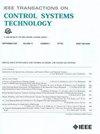Fishing for Data: Modeling, Optimal Planning, and Iterative Learning Control for Flexible Link Robots
IF 3.9
2区 计算机科学
Q1 AUTOMATION & CONTROL SYSTEMS
引用次数: 0
Abstract
In this work, we address the problem of precise motion planning and control of flexible-link robots for throwing small objects. Thanks to lightweight materials and elastic bodies, flexible robots can perform fast motions with few actuators. However, they need a planning and control strategy capable of exploiting the robot’s elasticity, negotiating with the system’s underactuation, and compensating for the model’s uncertainties. To solve this challenging task, we 1) compare multiple discrete models for continuum robots’ dynamics and, after selecting a lumped-parameter (LPs) model, experimentally identify its parameters; 2) plan the robot motion via a differential-dynamic-programming-based strategy tailored for flexible-link robots; and 3) employ an iterative learning control (ILC) approach to close the reality-gap. Combining these three steps allows us to execute precise throwing tasks with flexible-link robots. The strategy’s effectiveness has been validated via simulations and experiments with varying trajectories and payloads. We applied the aforementioned approach to realize a throwing motion with a fishing rod for environmental monitoring.搜集数据:柔性连杆机器人的建模、最优规划和迭代学习控制
在这项工作中,我们解决了用于投掷小物体的柔性连杆机器人的精确运动规划和控制问题。由于材料的轻量化和弹性体,柔性机器人可以在很少的驱动器下进行快速运动。然而,他们需要一种规划和控制策略,能够利用机器人的弹性,与系统的欠驱动进行协商,并补偿模型的不确定性。为了解决这一具有挑战性的任务,我们1)比较了连续体机器人动力学的多个离散模型,并在选择集总参数(lp)模型后,通过实验识别其参数;2)采用基于微分动态规划的柔性连杆机器人运动规划策略;3)采用迭代学习控制(ILC)方法来缩小现实差距。结合这三个步骤,我们可以用柔性连杆机器人执行精确的投掷任务。该策略的有效性已通过不同轨迹和有效载荷的模拟和实验得到验证。我们将上述方法应用于环境监测中鱼竿投掷运动的实现。
本文章由计算机程序翻译,如有差异,请以英文原文为准。
求助全文
约1分钟内获得全文
求助全文
来源期刊

IEEE Transactions on Control Systems Technology
工程技术-工程:电子与电气
CiteScore
10.70
自引率
2.10%
发文量
218
审稿时长
6.7 months
期刊介绍:
The IEEE Transactions on Control Systems Technology publishes high quality technical papers on technological advances in control engineering. The word technology is from the Greek technologia. The modern meaning is a scientific method to achieve a practical purpose. Control Systems Technology includes all aspects of control engineering needed to implement practical control systems, from analysis and design, through simulation and hardware. A primary purpose of the IEEE Transactions on Control Systems Technology is to have an archival publication which will bridge the gap between theory and practice. Papers are published in the IEEE Transactions on Control System Technology which disclose significant new knowledge, exploratory developments, or practical applications in all aspects of technology needed to implement control systems, from analysis and design through simulation, and hardware.
 求助内容:
求助内容: 应助结果提醒方式:
应助结果提醒方式:


